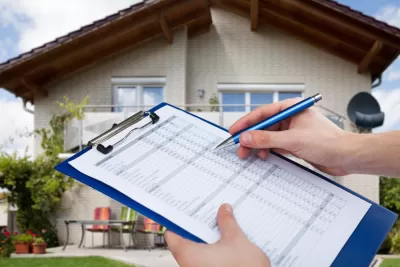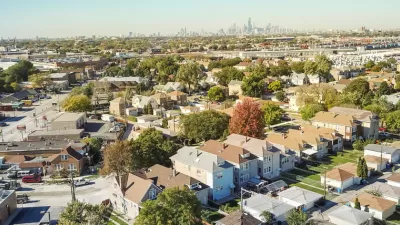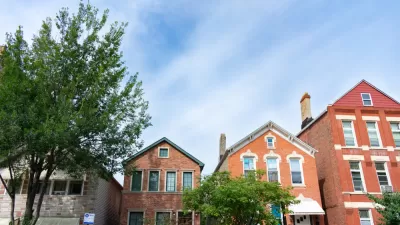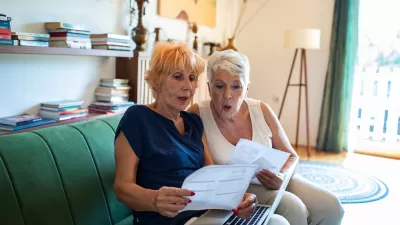An analysis of government data reveals a growing gap in the appraised values of homes in white and Black neighborhoods.

A new report highlights the racial gap in home appraisals, using recent government data to show that homes in predominantly white neighborhoods are assessed at, on average, twice as much as comparable homes in communities of color.
Writing in the Kinder Institute for Urban Research’s Urban Edge, Nancy Sarnoff outlines the results. “The report’s findings show that rather than improving over time, racial inequality in residential appraisals has worsened over the past decade,” with the discrepancy growing even faster during the pandemic. “By comparing similar homes in neighborhoods with the same socioeconomic status and comparable amenities, homes in white neighborhoods were valued $371,000 more than their counterparts in communities of color.” Sarnoff adds that “The neighborhood racial gap in appraised values increased by 75% — or $157,000 — from 2013 to 2021.”
This discrepancy makes a major impact on the ability of families to build equity and generational wealth. “A low appraisal can reduce a home’s market value and affect how much money a bank will lend on the purchase of that home.”
The report recommends two actions for addressing the gap: “reparations through targeted tax credits or stimulus programs and a new appraisal approach that does not rely on past sales.”
FULL STORY: New trove of federal data clearly shows a growing racial gap in home appraisals

Planetizen Federal Action Tracker
A weekly monitor of how Trump’s orders and actions are impacting planners and planning in America.

Maui's Vacation Rental Debate Turns Ugly
Verbal attacks, misinformation campaigns and fistfights plague a high-stakes debate to convert thousands of vacation rentals into long-term housing.

San Francisco Suspends Traffic Calming Amidst Record Deaths
Citing “a challenging fiscal landscape,” the city will cease the program on the heels of 42 traffic deaths, including 24 pedestrians.

Amtrak Rolls Out New Orleans to Alabama “Mardi Gras” Train
The new service will operate morning and evening departures between Mobile and New Orleans.

The Subversive Car-Free Guide to Trump's Great American Road Trip
Car-free ways to access Chicagoland’s best tourist attractions.

San Antonio and Austin are Fusing Into one Massive Megaregion
The region spanning the two central Texas cities is growing fast, posing challenges for local infrastructure and water supplies.
Urban Design for Planners 1: Software Tools
This six-course series explores essential urban design concepts using open source software and equips planners with the tools they need to participate fully in the urban design process.
Planning for Universal Design
Learn the tools for implementing Universal Design in planning regulations.
Heyer Gruel & Associates PA
JM Goldson LLC
Custer County Colorado
City of Camden Redevelopment Agency
City of Astoria
Transportation Research & Education Center (TREC) at Portland State University
Jefferson Parish Government
Camden Redevelopment Agency
City of Claremont





























